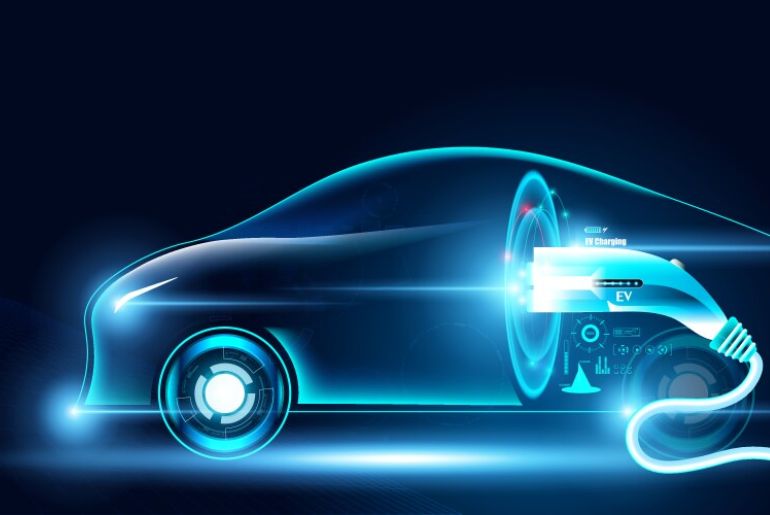Electric vehicles (EVs) are revolutionizing transportation by offering cleaner, more efficient alternatives to traditional internal combustion engine vehicles. A critical component that influences an EV’s performance and efficiency is the Electric Power Control Unit (EPCU). This sophisticated system manages the flow of electricity between the battery, motor, and auxiliary systems, ensuring optimal energy use and vehicle performance.
Different electric vehicles are equipped with varying Electric Power Control Units, each designed to meet the specific needs of the model. This article compares the EPCUs in different EV models, focusing on their efficiency, performance, and impact on overall vehicle operation.
Understanding the Electric Power Control Unit (EPCU)
The Electric Power Control Unit (EPCU) serves as the brain of an electric vehicle’s power system. It integrates multiple functions, including:
- Inverter Control: Converts DC power from the battery into AC power for the motor.
- DC-DC Conversion: Steps down high-voltage battery power for use in low-voltage systems (e.g., lights, infotainment, and auxiliary functions).
- Energy Management: Optimizes power distribution to maximize efficiency and performance.
An EPCU’s efficiency directly impacts an electric vehicle’s range, acceleration, and overall driving experience. Different EV models incorporate distinct EPCUs, each tailored to their design and purpose.
Comparison of EPCUs Across Different EV Models
-
Tesla Model S vs. Nissan Leaf
Tesla Model S EPCU
Tesla’s Electric Power Control Unit is known for its high efficiency and performance. The Tesla Model S utilizes an advanced EPCU that integrates a silicon carbide (SiC) inverter, improving efficiency and reducing energy losses.
- Efficiency: Over 97% conversion efficiency due to SiC technology.
- Performance: Supports a dual-motor configuration for instant torque and high-speed acceleration.
- Thermal Management: Uses liquid cooling for improved heat dissipation.
Nissan Leaf EPCU
The Nissan Leaf is a more affordable electric vehicle, with an EPCU optimized for efficiency and everyday driving rather than high performance.
- Efficiency: Around 94-96% efficiency, using traditional silicon-based inverters.
- Performance: Designed for urban commuting with moderate acceleration and a single-motor setup.
- Thermal Management: Relies on air-cooling, making it less efficient under high loads compared to liquid-cooled systems.
Verdict: The Tesla Model S EPCU is more efficient and performance-oriented, while the Nissan Leaf EPCU prioritizes affordability and efficiency for city driving.
-
Hyundai Ioniq 5 vs. Ford Mustang Mach-E
Hyundai Ioniq 5 EPCU
The Hyundai Ioniq 5 features an Electric Power Control Unit designed for versatility and efficiency.
- Efficiency: Uses a SiC-based inverter, achieving over 95-97% efficiency.
- Performance: Supports both rear-wheel-drive (RWD) and all-wheel-drive (AWD) configurations.
- Regenerative Braking: Optimized EPCU for efficient energy recovery during braking.
Ford Mustang Mach-E EPCU
The Ford Mustang Mach-E is a performance-focused electric vehicle, equipped with a high-power EPCU.
- Efficiency: Ranges from 92-95% efficiency, slightly lower due to higher power output.
- Performance: Designed for sporty driving with dual-motor AWD options.
- Thermal Management: Uses active liquid cooling, enhancing performance at high speeds.
Verdict: The Hyundai Ioniq 5 EPCU offers a balance between efficiency and performance, while the Mustang Mach-E EPCU is geared more towards high-speed driving and power delivery.
-
Audi e-tron vs. Porsche Taycan
Audi e-tron EPCU
The Audi e-tron is a luxury electric vehicle, featuring an EPCU designed for comfort and efficiency.
- Efficiency: 94-96%, focusing on smooth power delivery.
- Performance: Twin-motor AWD system with moderate acceleration.
- Regenerative Braking: Supports energy recovery but not as aggressively as some competitors.
Porsche Taycan EPCU
The Porsche Taycan uses a highly advanced Electric Power Control Unit, optimized for high-speed performance.
- Efficiency: 96-98%, thanks to 800V architecture.
- Performance: Uses dual or tri-motor configurations for extreme acceleration.
- Regenerative Braking: Aggressive EPCU tuning allows for superior energy recovery.
Verdict: The Audi e-tron EPCU prioritizes comfort and efficiency, while the Porsche Taycan EPCU focuses on extreme performance and speed.
Key Factors Affecting EPCU Performance in EVs
- Inverter Technology
- Silicon Carbide (SiC) Inverters: Improve efficiency (97-98%), used in high-end models like Tesla and Porsche Taycan.
- Silicon-Based Inverters: Lower efficiency (92-96%), found in budget-friendly models like Nissan Leaf.
- Thermal Management
- Liquid Cooling: More efficient, found in Tesla, Porsche, and Ford.
- Air Cooling: Cost-effective but less efficient, used in Nissan Leaf.
- Regenerative Braking Efficiency
- More Advanced EPCUs (Porsche Taycan, Tesla Model S) recover up to 80% of braking energy.
- Less Advanced EPCUs (Nissan Leaf, Audi e-tron) recover around 60-70%.
Conclusion: Which EPCU is the Best?
The Electric Power Control Unit is a crucial determinant of an electric vehicle’s efficiency and performance. While high-performance EV models like the Porsche Taycan and Tesla Model S feature advanced EPCUs with SiC inverters and superior thermal management, more affordable options like the Nissan Leaf and Hyundai Ioniq 5 prioritize cost-efficiency and balanced energy use.
Choosing the best EPCU depends on the intended use of the electric vehicle:
- For maximum efficiency: Tesla Model S, Hyundai Ioniq 5.
- For high performance: Porsche Taycan, Ford Mustang Mach-E.
- For affordability: Nissan Leaf, Audi e-tron.
As electric vehicle technology advances, future EPCUs will likely become more efficient, compact, and powerful, further enhancing the driving experience and promoting widespread EV adoption.

